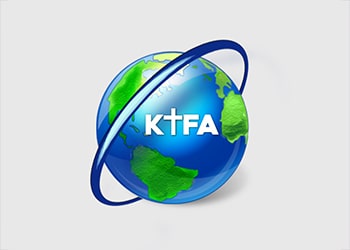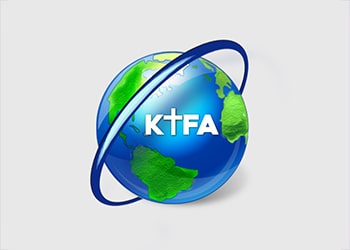Some “Friday News” Posted by KTFA Members 4-5-2024
KTFA:
Clare: Iraq will become an “alternative” to the Suez Canal
4/5/2024
Reports published by Reuters International and Splash News Agency, today, Thursday, described the large Al-Faw port project, which was expected to be completed next year, as “an alternative to the Suez Canal,” stressing that “Iraq will become, during the next few years, a “center” for international trade between the East and the Middle East.” And the West.”
Reuters said, according to a report translated by NRT Arabic, that the Gulf countries are fully aware of the economic development taking place in Iraq, which is expected to increase soon with the completion of the Al-Faw port project and “huge” business projects, including Gulf investments in the country through the establishment of residential complexes and tourist hotels, indicating, “The Gulf has begun… “He is testing the waters by transferring his international investments to Iraq.”
She continued, “According to Gulf expectations, Baghdad will become one of the most important Arab capitals for the next twenty-five years,” explaining what Splash Agency reported about the expected development of the Iraqi economy through the end of the Al-Faw port, which she said would turn Iraq into an “alternative” to the Suez Canal and an international trade corridor connecting Between East and West.
The agency also confirmed that the new port will be able to receive goods and goods and transport them through Iraq to Turkey and then Europe in a “huge and unprecedented” manner by receiving cargo ships and giant oil tankers, which will “contribute” to transforming Iraq into an oil export center in addition to its new location as an alternative. About the Suez Canal, according to its description.
The agency also noted that the Al-Faw port project, which has been stalled since 2010, is expected to end next year with the Iraqi authorities insisting on ending it after concluding an agreement with Turkey to establish railways and roads worth $17 billion, ensuring that the two countries will transform into a commercial transport point. Goods and commodities between the continents of Europe and Asia.
It is noteworthy that the agency also indicated that the limited transportation of ships through the Suez Canal, which allows the passage of a small number of tankers and giant trucks, will help transform the large Al-Faw port and its transportation route into a “suitable alternative” that allows the movement of very large quantities of goods and commodities without long waiting periods, according to the agency. Describe it. LINK
************
Clare: After the Eid…a parliamentary movement was revealed to host the Sudanese in Parliament
4/5/2024 Baghdad
Member of the Parliamentary Finance Committee, Moeen Al-Kadhimi, held the government responsible for delaying the release of budget allocations, noting that many projects have been halted due to the failure to release financial allocations.
Al-Kadhimi said in an interview followed by Mawazine News, that “the Prime Minister’s advisors are putting the final touches on the budget, and it is expected to be sent to Parliament for a vote after the Eid,” indicating that “there are increases in salary requirements that reached 8.5 trillion dinars per month, which led to an increase in salary requirements.” The size of the budget reaches 228 trillion dinars.”
He added, “The projects of the Ministries of Health and Education were halted due to the delay in approving the budget, despite the presence of advances approved by the Ministry of Planning.”
Al-Kadhimi called on the government to “send the budget schedules to Parliament as soon as possible for approval,” noting that “the disbursement of financial allocations should not be affected by delays in the schedules, given that the budget is three-year.”
He revealed, “A parliamentary move to host the Prime Minister, the Ministry of Finance, and the relevant authorities in Parliament to discuss the reasons for the delay, if the budget is not sent after the Eid al-Fitr holiday.” LINK
************
Clare: Advisor to the Association of Private Banks: Al-Sudani will discuss the sanctions file on 28 banks in Washington
4/5/2024 Baghdad
Advisor to the Association of Private Banks, Samir Al-Nusairi, announced that the US sanctions on 28 banks constitute one of the important files on the agenda of Prime Minister Muhammad Shiaa Al-Sudani during his visit to Washington.
Al-Nusairi said in an interview followed by Al-Eqtisad News, “During his visit to Washington, during which he will be accompanied by a delegation from the Central Bank and the banking sector, Al-Sudani will discuss the sanctions and restrictions imposed by the United States on the 28 banks, which deprived them of dealing in the US dollar.”
He believed that these sanctions and restrictions constitute “one of the important files that the Prime Minister carries with him to Washington,” indicating that the file “falls within the financial and banking reform stipulated in the Prime Minister’s government program.” LINK
Don961: Zimbabwe launches new gold-backed currency
Harare – Zimbabwe’s central bank launched a new “structured currency” backed by gold on Friday, as it seeks to tackle sky-high inflation and stabilise the country’s long-floundering economy.
The ZiG — short for Zimbabwe Gold — will replace the Zimbabwean dollar which has tumbled in value over the past year, pushing inflation through the roof, Reserve Bank governor John Mushayavanhu said.
“With effect from today… banks shall convert the current Zimbabwe dollar balances into the new currency,” he said, presenting a monetary policy statement.
He also announced a drastic cut in the bank’s main interest rate, from 130 percent to 20 percent.
The ZiG will be “fully anchored and fully backed” by a basket of reserves comprising foreign currency and precious metals — mainly gold, Mushayavanhu added.
The move is aimed at fostering “simplicity, certainty, (and) predictability” in Zimbabwe’s financial affairs, he said, presenting the new banknotes that come in eight denominations ranging from 1 to 200 ZiG.
The Zimbabwean dollar has lost almost 100 percent of its value against the US greenback over the past year.
On Friday, it was officially trading at around 30,000 against its more coveted US counterpart — and at 40,000 on the black market, according to tracker Zim Price Check.
Its poor performance contributed to the southern African country’s high inflation rate, which after climbing well into the triple digits last year, was at 55 percent in March, according to official data.
This has piled pressure on its 16 million people who are already contending with widespread poverty, high unemployment and a severe drought induced by the El Nino weather pattern.
– More gold needed? –
Zimbabweans have 21 days to convert their old cash into new money, Mushayavanhu said.
The new banknotes feature a drawing of gold ingots being minted, as well as Zimbabwe’s famous Balancing Rocks, which already appeared on the old ones.
Zimbabwe boasts vast gold deposits, with the precious metal accounting for almost 25 percent of all exports in January, according to official data.
But analysts have questioned whether Harare has enough reserves to adequately back the currency, and if the latter could suffer from volatility in gold prices.
On Thursday, President Emmerson Mnangagwa inspected the central bank’s vaults that Mushayavanhu — who was appointed earlier this year — said hold 1.1 tonnes of solid gold.
The bank also has almost 1.5 tonnes more abroad, as well as $100 million in cash and precious minerals such as diamonds that if converted into gold would account for another 0.4 tonnes, he added.
All together the reserves’ value totals $285 million, which Mushayavanhu said was “more than three times cover for the ZiG currency being issued”.
But some were sceptical.
“We obviously need more,” said economist Prosper Chitambara, adding that other countries such as neighbouring South Africa had much larger reserves.
“The more the reserves, obviously, the more the confidence and the more your capacity to be able to defend your currency against any shocks.”
The central bank said it would adopt a tight monetary policy, linking money supply growth to growth in gold and foreign exchange reserves.
– Trillion-dollar inflation –
Soaring prices have brought back memories of 2008, when hyperinflation was so out of control that the central bank even issued a 100-trillion-dollar note — now a collectors’ item.
The government was eventually forced to ditch the local currency and adopt the US dollar as legal tender.
The Zimbabwean dollar was revived in 2019, but it has suffered from much the same issues as its previous incarnation.
Most Zimbabweans prefer to do business, get paid and hold their savings in US dollars.
Many who earn a salary in local money rush to currency exchange shops on pay day.
The government has previously resorted to various expedients to stabilise the economy, including issuing gold coins and launching a gold-backed digital currency but they have yielded little results. LINK
****************
Don961: The legal basis for depositing oil revenues in the US Federal Reserve, CBI clarified
2024-04-02 01:53
Shafaq News/ The Central Bank of Iraq (CBI) clarified on Monday the legal rationale behind depositing oil revenues in the US Federal Reserve.
Documents released by the bank and seen by Shafaq News agency state that “the legal basis for depositing oil revenues in the Federal Reserve Bank in New York under the IRAQ2 account instead of the Development Fund for Iraq (DFI) is linked to the expiration of Executive Order 13303 issued by the US President in March 2003.
This order granted immunity to Iraqi funds deposited in the DFI account at that time. Furthermore, the protection of Iraqi funds provided by UN Security Council Resolution 1483 of 2003 ended with the issuance of UN Resolution 1956 at the close of 2010.”
The documents elaborate, “Hence, the IRAQ2 account was established to receive proceeds from Iraqi crude oil exports, subsequently transferred to the Central Bank of Iraq’s account at the Federal Reserve Bank within 24 hours to safeguard them from creditors’ claims. These funds are categorized as belonging to the Iraqi government, derived from crude oil exports. This arrangement was formalized through a Memorandum of Understanding signed between the Iraqi Ministry of Finance and the Central Bank of Iraq on 2/6/2014, which serves as the legal framework for the IRAQ2 account as an alternative to the Development Fund for Iraq account.”
The documents clarify, “Immunity granted by these documents is applicable solely to sovereign funds and does not extend to funds utilized for commercial purposes.”
Addressing the third paragraph, the documents detail that “foreign reserves may be deposited with various external entities, central banks, and financial institutions, not limited to the Federal Reserve Bank. Interest rates vary based on investment category, duration, and the institution. Additionally, Orient, the contracted shipping company, transports dollar shipments from the Federal Reserve Bank to Baghdad International Airport, with insurance at $414,000 per shipment and transportation fees of $216,310 provided by the Legislative Affairs Department, Parliamentary Oversight Division.”
Furthermore, they state, “Domestic transfer of oil sales revenues is impractical due to operational constraints, risking Iraq’s financial operations if funds remain within the country.
Closing the Federal Reserve Bank account could expose Iraq to international claims and hinder settlements in US dollars without an account at the Federal Reserve Bank or another American commercial bank.” LINK





